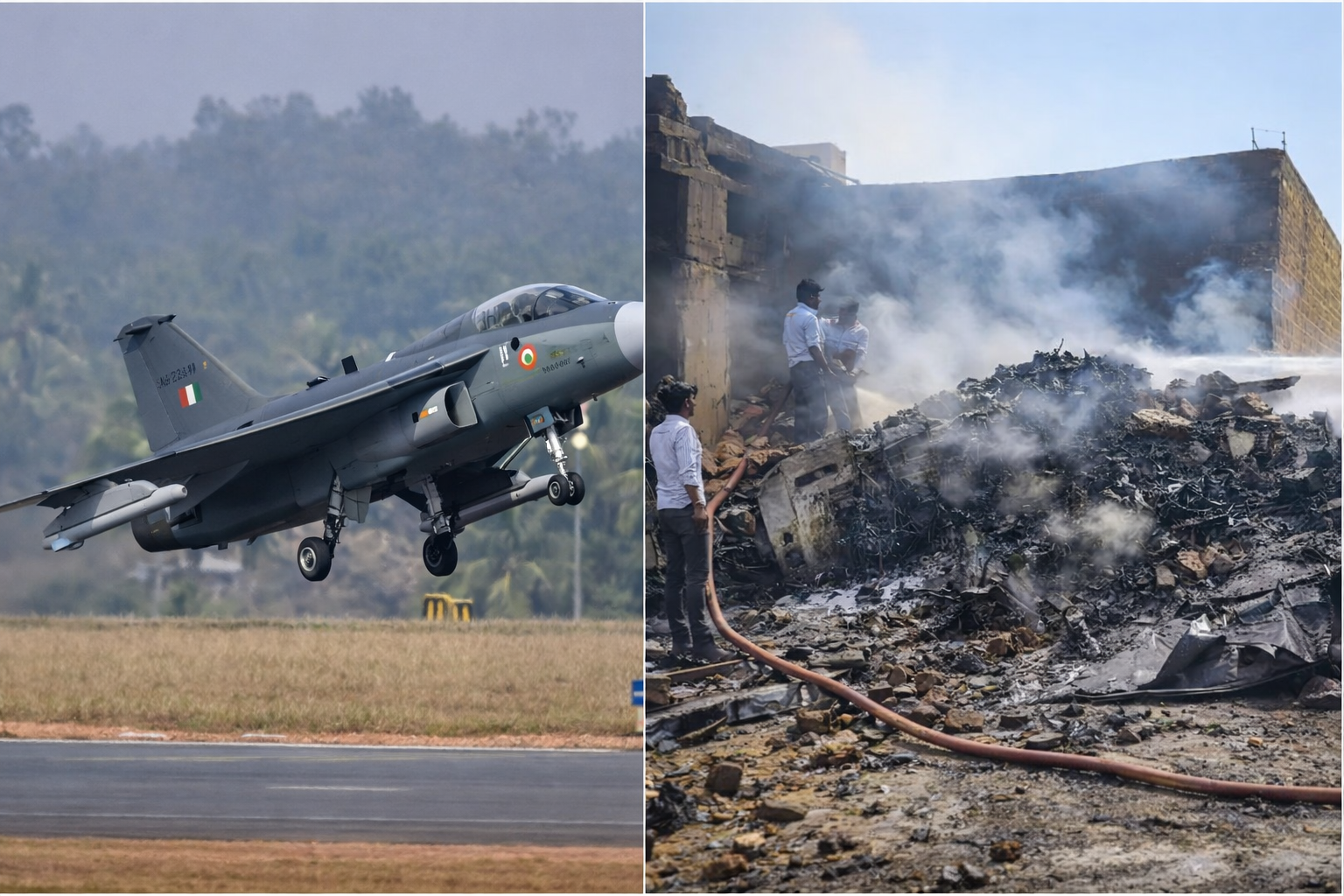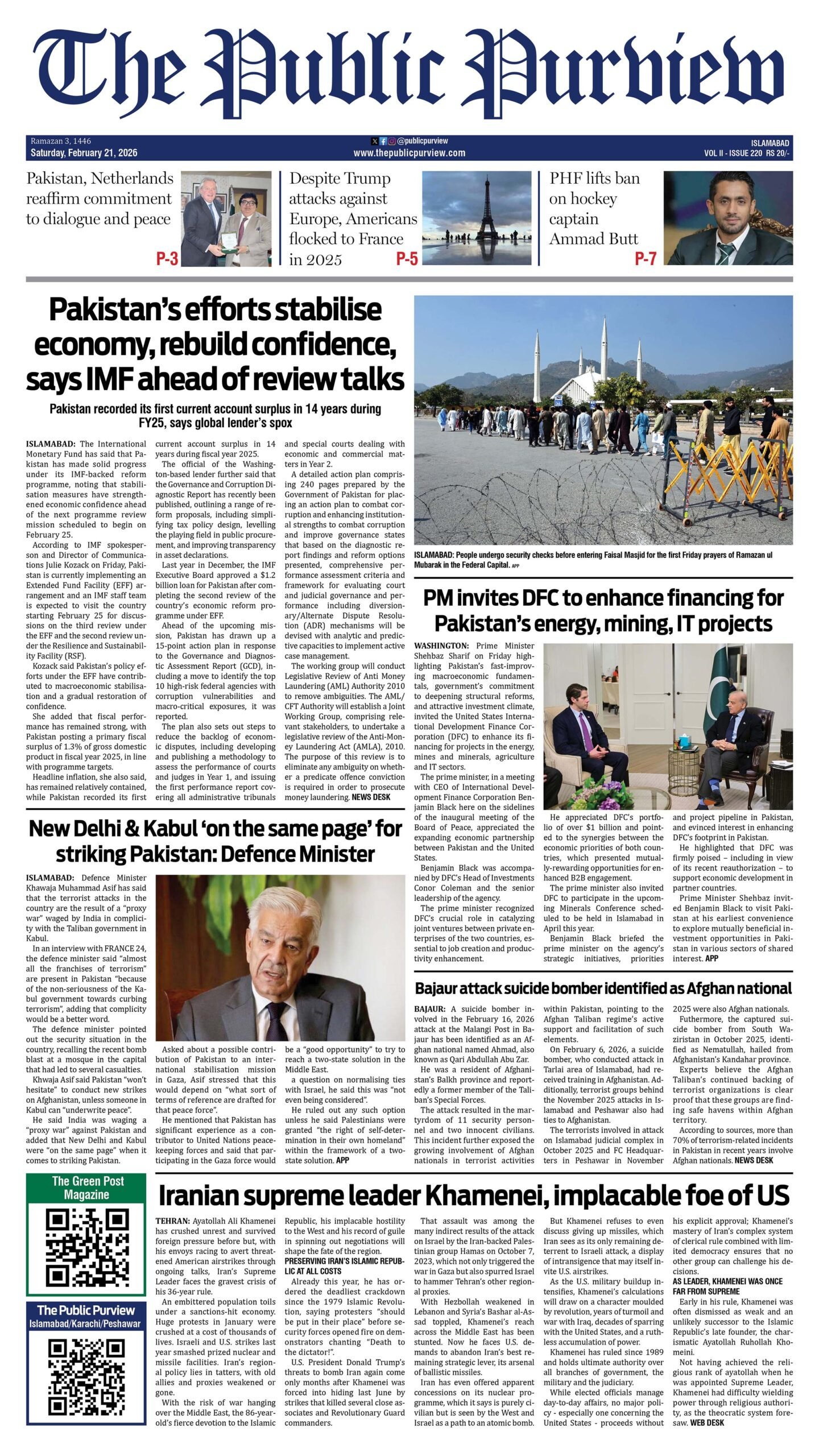
By: Rizwan Tahir Chohan
Pakistan is facing a serious health crisis, one that goes beyond doctors and hospitals. The real cause lies in the dirty air we breathe, the rising heat and the polluted water we use. Climate change, pollution and environmental damage are now major reasons why more people in the country are getting sick.
In cities like Karachi, Lahore and Faisalabad and Multan the air is full of harmful smoke and dust, causing breathing problems. In rural and now urban areas, floods are spreading dirty water, leading to diseases like diarrhea and skin infections. Extreme heatwaves are becoming more common, especially in Sindh and South Punjab, and they often lead to heatstroke and even death. These problems are all connected, and they are getting worse. Pakistan’s healthcare system is already under pressure. It is now struggling to deal with new health threats that come from changes in the environment. But there is some hope.
A new national strategy has been launched called “One Health Pakistan” initiative. It brings together the country’s health, animal care and environment departments to work on these problems together. The aim is to stop diseases before they start, especially those caused by pollution, animals, and climate change.
This new effort ‘One Health Workforce Development Project’ is led by the Health Services Academy (HSA) of Ministry of National Health Regulation and Coordination (MoNHRC) and supported by the Ministry of Climate Change and Environmental Coordination (MoCC&EC). It also has the support of important global groups like the World Health Organization (WHO), UN Food and Agriculture Organization (FAO), World Bank, Asian Development Bank (ADB), and WWF-Pakistan.
At recent meetings in Islamabad, health and climate experts, government officials, and international partners met to discuss how to train people and improve systems to deal with future health threats. Dr. Malik Mukhtar Ahmed Bhurt, the Prime Minister’s Coordinator on Health, made an important point: “Our goal is not just to treat diseases but to build a system that stops outbreaks before they happen.” This is the right approach. The COVID-19 pandemic showed us that we need to be ready before a crisis begins. We need stronger systems that can track diseases, better research, and more teamwork between different departments.
According to Dr. Tariq Mahmood Ali, National Coordinator of the One Health Project, Pakistan can no longer think about human health, animal health and environmental health as separate thing and tackling them is possible only through a united response by all governmental and non-governmental organisations.
Dr. Nelson Azeem, Federal Parliamentary Secretary for Health, agreed, saying that Pakistan must fully support the One Health approach to protect people, animals and nature.
At the same time, Muhammad Asif Sahibzada, Director General at the Ministry of Climate Change and Environmental Coordination, warned that air pollution, rising temperatures and the loss of plants and animals are increasing the number of dangerous diseases. The director general said that weak coordination between departments can delay quick action during emergencies.
To solve this, he suggested, setting up special One Health Units in both federal and provincial departments. These units would share real-time data and respond quickly to disease outbreaks caused by pollution or climate change. Funding could come from government development programs or international support.
Health and Environmental Communication Specialist, Muhammad Saleem Shaikh, a Deputy Director at the Ministry of Climate Change & Environmental Coordination, said that building trust and teamwork among key groups, such as policymakers, health workers, and local communities, is very important. He also said that Pakistan should use both traditional and digital media to raise awareness and support for the One Health program.
Other experts added that Pakistan needs more trained workers, better policies, and new ways of working together. The focus should be on planning for the future, especially as climate change makes health challenges more unpredictable.
The truth is clear that pollution and climate change are making more people sick. Insect-borne diseases like dengue and malaria are spreading faster. Smog is causing breathing problems for millions. Contaminated water is leading to infections and stomach illnesses. And if these trends continue, future pandemics may hit Pakistan even harder than COVID-19 did.
That’s why the One Health Pakistan initiative is so important. It brings together people from different fields to fight these problems together. It focuses on preventing diseases, not just treating them after they spread. And it helps make Pakistan more ready for future health risks linked to climate and environment.
But good plans are not enough. The government must turn this plan into reality. That means proper funding, training, coordination and clear responsibilities at every level, from the federal ministries to the local clinics. The success of this effort will also depend on how well the public understands and supports it. That’s why communication, education and public engagement must be part of the strategy. People need to know why climate and health are inter-linked and what they can do about it.
Pakistan’s health crisis is alarmingly real. It is being made worse by the way we treat our air, water, land and animals. If we do not act now, more people will suffer, especially the poor, children, and the elderly. The One Health initiative is a step in the right direction. It offers hope that Pakistan can become stronger and healthier in the face of climate change and pollution. But that will only happen if we follow through with urgency, unity, and determination. Because the health of our people depends not just on doctors, but on protecting the environment together we all share.
_The writer is a Ph.D. scholar at NUML Islamabad and a working journalist affiliated with mainstream media. He can be reached at rizwanchohan.media@gmail.com._







 Today's E-Paper
Today's E-Paper